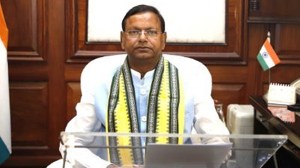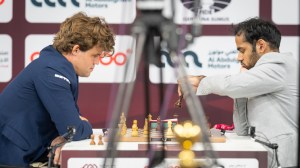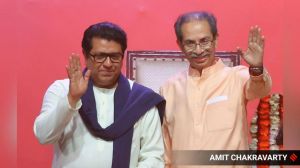Killing with kindness
Every Merat in Rajasthan has excellent reason to ask the most philosophical of questions: quot;Why me?quot; In a country where religious l...

Every Merat in Rajasthan has excellent reason to ask the most philosophical of questions: quot;Why me?quot; In a country where religious lines are often blurred, despite the strenuous exertions of religious and political leaders to prove the contrary, the Merats are uniquely unfortunate in inviting the attention of proselytisers. Who, strangely enough, are seeking their conversion 8212; or reversion 8212; to a religion that has never believed it necessary to preach or convert. Worse, they have come to be seen as victims of a historical wrong8217;. Now, the Hindu community must apparently rally around and try to save them from a fate worse than death, no matter what these so-called victims think of the situation themselves. And to keep the game going, Muslim interests must come into play as well. From the insanity of historical necessity, we seem to have graduated to the no less sober concept of historical justice.
In India, despite claims to a state of perfection in a dim and distant past, religion has always been definedby usage. It has rarely been organised in the sense that the faiths of Middle Eastern origin have been. Despite the very visible authority of great temples, mosques and churches, it is the little tradition of worship at home and in the local community that has moulded religious practice. Free of the pompous self-consciousness of great traditions, it has eclectically used whatever came to hand. So an Orthodox Christian in Kerala sees nothing wrong in beginning his prayers by lighting a very Hindu brass lamp, and the mangalsutra remains the most important object in his or her wedding ceremony. Similarly, the lakhs of Hindus who go to Sabarimala see no evil in the ancient practice of starting the pilgrimage by praying at the mosque of Vavar. And in north India, Ajmer Sharif draws at least as many Hindu devotees as Muslims. For this appreciation that the trappings of religion are less important than faith itself, there is a pretentious term which is freely bandied about in seminar room and lecture hall:syncreticism. It kills with kindness, just as the well-intentioned do-gooders in Rajasthan, both Hindu and Muslim, are trying to destroy the Merat community with intrusive, overbearing attention.
If these bodies respect Indian tradition, they should see nothing wrong in a Muslim choosing to cremate his kin, or in celebrating Holi and Diwali with as much enthusiasm as his Hindu neighbour. These festivals, in fact, are not really defined as Hindu. They are ancient events of the solar calendar that predate Hinduism. The practice of cremation, too, has come down from time immemorial and is not peculiarly Hindu. Muslims who are capable of such independent belief belong to a healthy society. Now, all that the VHP and its Muslim counterparts have managed to achieve is to divide it along the most pernicious of lines. Which is only to be expected, given the levels of ignorance at work here. For instance, the VHP8217;s organising secretary for Rajasthan, Uma Shankar, identifies Kabir as a Muslim. Need more be said?
- 01
- 02
- 03
- 04
- 05































